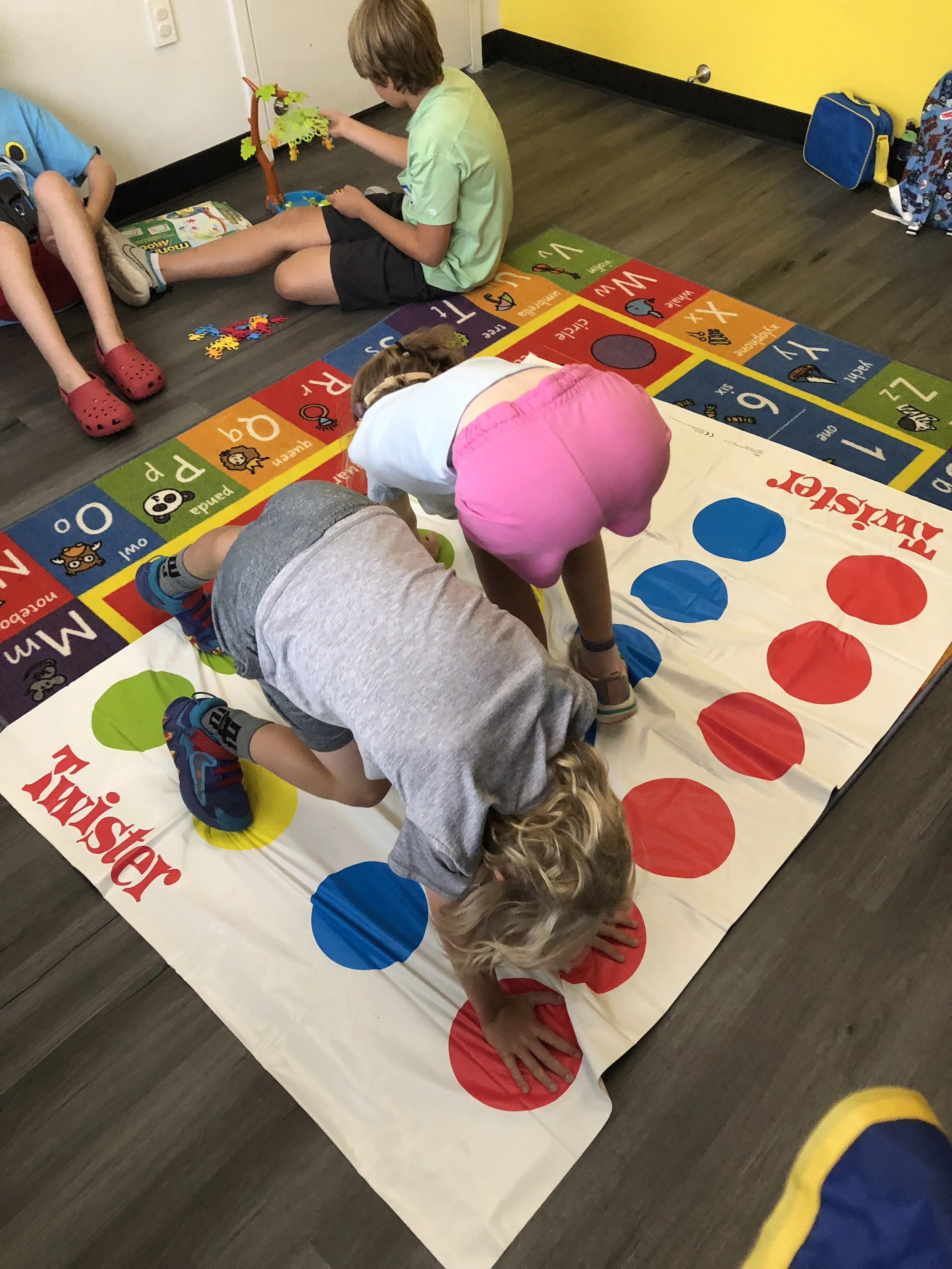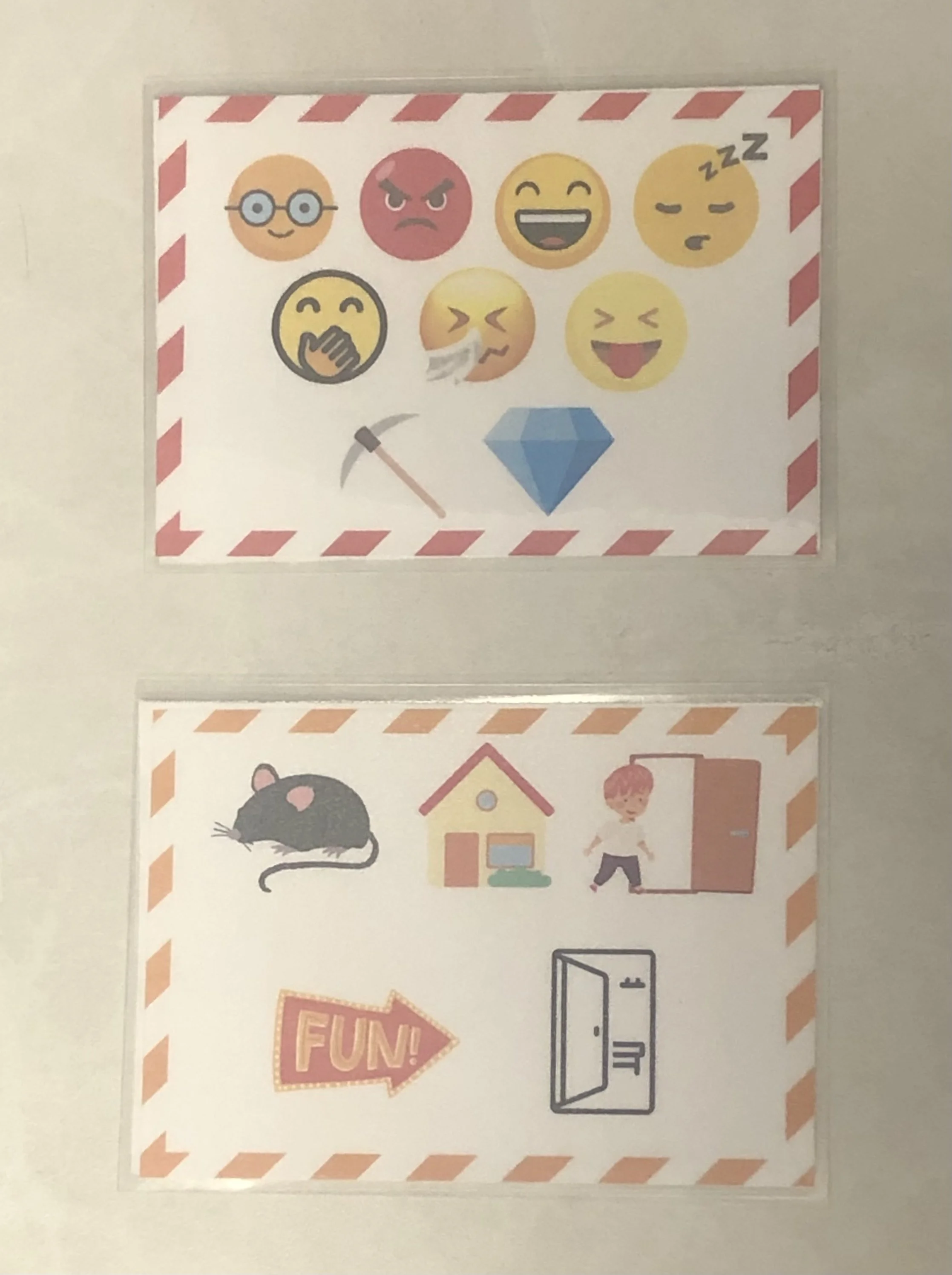Using Music Games in a Clinical Setting
Unlock Your Child's Potential: Discover How Fun Musical Games Drive Real Therapy Results
Is traditional therapy sometimes a struggle? Do you wish there was a way to help your child build crucial skills while actually having fun? At Musical Bridges, we harness the power of play through engaging musical games, turning therapy sessions into exciting adventures that deliver meaningful progress.
Therapy That Feels Like Play: Our Unique Musical Games
We believe that motivation is key to success in therapy. That's why our experienced music therapists use specially adapted and original games designed to target specific developmental goals in a joyful, engaging way. Here are just a few examples:
Music Monopoly:
This twist on a classic family board game is a hit in music therapy! Some components remain the same while others have taken a turn towards the musical. You will still go around the board earning money and spending it the same way, what you buy and sell however is no longer real estate. In our version of monopoly, you buy concert tickets or get paid for the new song you wrote! Players will earn penalties, being stuck in the recording studio can put an end to your turn. The benefits you earn really make you feel like a rockstar!
Skills Targeted: This game is fantastic for reinforcing academic concepts (like counting money or reading), promoting turn-taking and social skills, enhancing executive functions (planning, organizing), and improving frustration tolerance.
Musical Twister:
Get ready to stretch and slip, our version of twister uses the regular board and spinner just as you would find straight out of the box. We have added an instrumental element in the form of wrist bells. Losing a round will lead to some complications! This is a great game for a group setting or an individual session!
Skills Targeted: Musical Twister is excellent for developing gross motor skills, body awareness, direction following, impulse control, self-regulation, and color/number/picture identification. It’s a physical and mental workout!
Musical Math:
With the addition of a Montessori math game, we have expanded upon simple addition, subtraction, division, and multiplication and made it musical! From previous posts regarding Neurologic Music Therapy®, we have established that music is a motivator, especially in academic instances. Math can be a difficult subject, and not always a fan favorite. With the use of strategic singing, and rhythm we have brought a fun musical element to learning math skills. While primarily focusing on a cognitive area of academics this game has an added bonus of targeting fine motor skills through placement of the game pieces.
Skills Targeted: This game strengthens number recognition, counting, basic addition/subtraction, pattern recognition, and sustained attention.
Song association:
An already existing musical game apprehended for our use! We have created our own version of the song association and created different cards to play the game with. This fun game can get you thinking and singing a wide variety of songs. We can add on the fun by bringing in a white board or piece of paper to create new categories. This game has endless possibilities. Once a song has been decided on other skills such as gross and fine motor can be incorporated through instrument play to the song.
Skills Targeted: Great for boosting word recall, cognitive flexibility, processing speed, social interaction, and memory.
Emoji Music Game:
We have even added a popular game that has popped up through social media! This emoji-based game will hone cognitive skills and encourage players to use their skills of deduction, inference, and problem solving. We have the cards separated into different categories such as movies and nursery rhymes. These categories could be endless similarly to the song association game. The category would change based on a client and what music they are familiar with.
Skills Targeted: This enhances abstract thinking, non-verbal communication skills, emotional recognition (through emojis and music), and social engagement.
Why Games Work: The Science Behind the Fun
It might look like just fun and games, but there's a powerful therapeutic method at play. Using games in music therapy allows us to:
Increase Motivation: Games are inherently engaging, making clients want to participate and practice skills.
Reduce Anxiety: The playful context lowers pressure and makes facing challenges less intimidating.
Target Multiple Skills Simultaneously: Many games naturally address cognitive, physical, emotional, and social goals all at once.
Provide Immediate Feedback: The game structure offers instant reinforcement for successful actions.
Build Rapport: Shared fun strengthens the therapeutic relationship between client and therapist.
At Musical Bridges, our therapists are experts at selecting and adapting games to meet each individual's specific therapeutic objectives, ensuring that every fun moment contributes to real progress.
Ready to See the Difference Music Therapy Games Can Make?
Discover how Musical Bridges can help your child develop essential skills, build confidence, and thrive through our unique, engaging music therapy approach. Take the first step today and reach out for a free, no obligation chat with one of our therapists!







